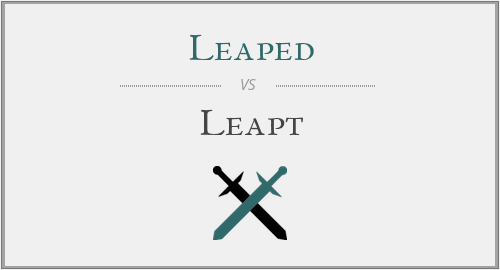Leaped vs. Leapt: Navigating Verb Forms in English
When it comes to expressing past actions involving jumping or moving swiftly, the terms "leaped" and "leapt" are both acceptable, but their usage may vary based on regional preferences. This article aims to clarify the distinctions between "leaped" and "leapt," shedding light on their meanings, applications, and appropriate usage in various contexts.
Correct Usage:
Leaped:
"Leaped" is the more common spelling of the past tense form of the verb "leap" in American English. It is widely recognized and accepted, particularly in the United States. It follows the standard pattern of forming regular past tense verbs by adding "-ed."
Leapt:
"Leapt" is an alternative spelling of the past tense form of "leap" and is commonly used in British English. While it is less prevalent in American English, it is still considered correct and acceptable in both British and American English.
Meanings and Applications:
Leaped:
Use "leaped" to describe the action of jumping or moving swiftly in the past tense. This form is suitable in both formal and informal contexts and aligns with standard American English usage.
Leapt:
Use "leapt" when writing in British English or when you prefer to use the alternative spelling. While less common in American English, it is understood and accepted in both regions.

Examples:
Correct (American English): The athlete leaped over the hurdle with grace.
Correct (British English): He leapt across the pond to catch the escaping butterfly.
Regional Preferences:
The choice between "leaped" and "leapt" may depend on regional preferences or the desired stylistic effect. American English tends to favor "leaped," while British English may use both forms, with a slight preference for "leapt."
Conclusion:
Whether you choose "leaped" or "leapt" depends on your regional preferences and the desired tone of your writing. Both forms are correct and convey the past tense of the verb "leap" effectively, offering flexibility in expression in different English language contexts.




Have a discussion about this article with the community:
Report Comment
We're doing our best to make sure our content is useful, accurate and safe.
If by any chance you spot an inappropriate comment while navigating through our website please use this form to let us know, and we'll take care of it shortly.
Attachment
You need to be logged in to favorite.
Log In